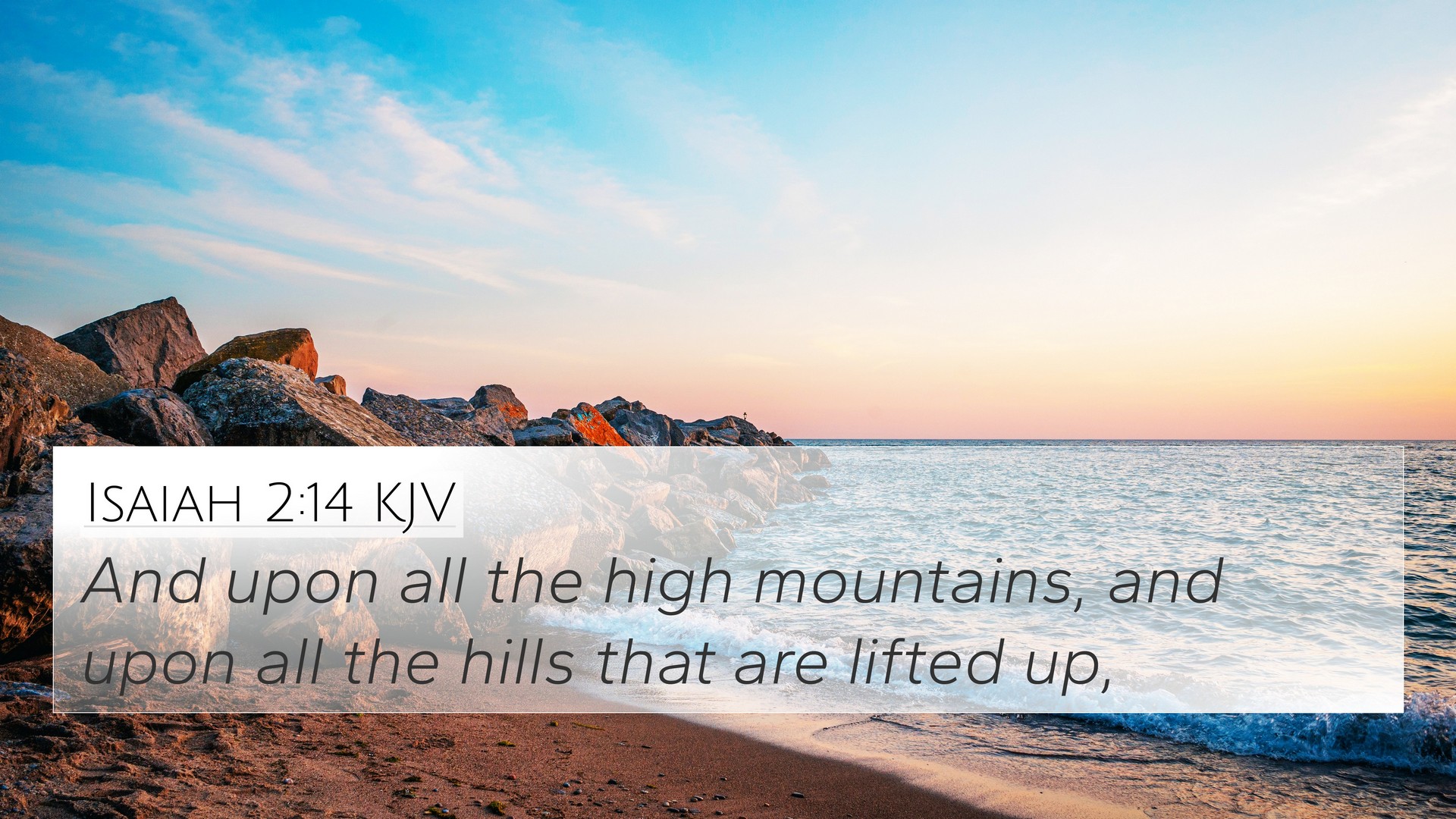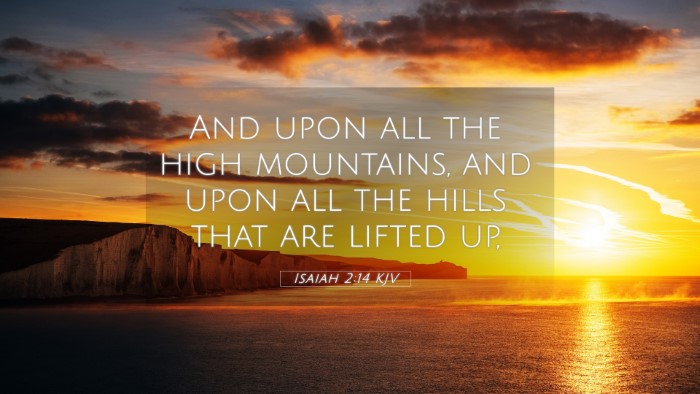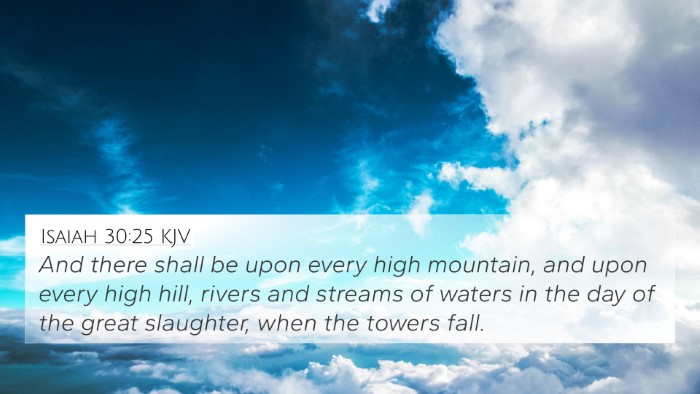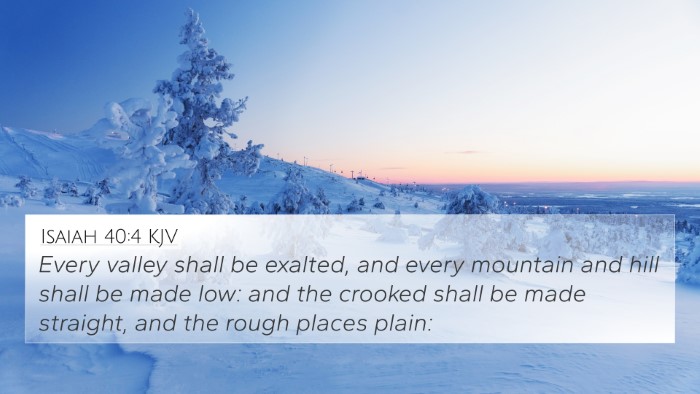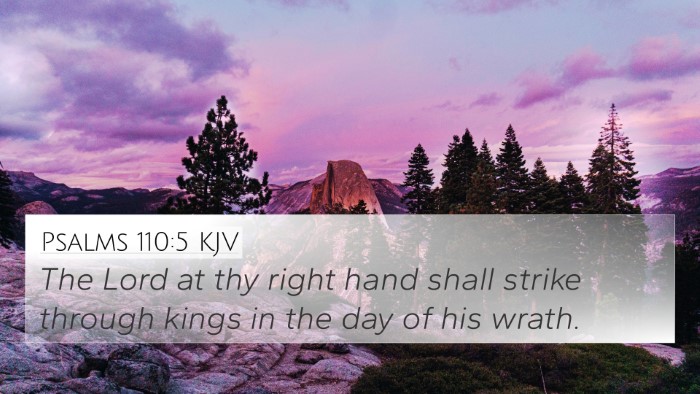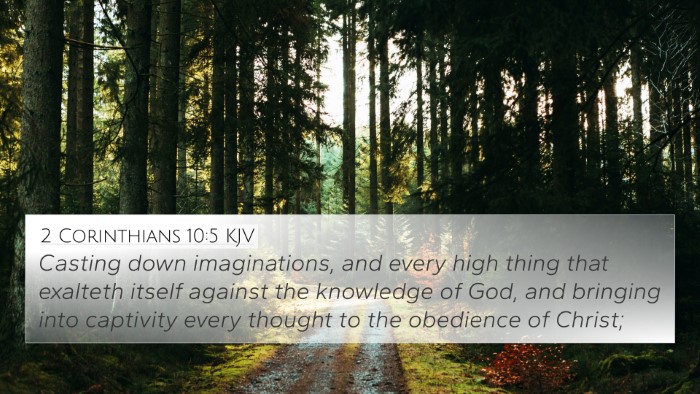Understanding Isaiah 2:14
Isaiah 2:14 reads: "And upon all the high mountains, and upon all the hills that are lifted up." This verse speaks to the judgment upon the pride and arrogance symbolized by the high places where the people of Judah and Israel had often worshiped idols. This verse serves as a reminder of God's sovereignty and the impending judgment against those who turn from Him.
Context and Meaning
Drawing from the insights of public domain commentaries, we can understand this verse through several lenses:
-
Matthew Henry emphasizes the imagery of "high mountains" and "hills" as representing the nations' pride, hinting at both physical and spiritual elevations that exist in the human heart. Henry notes that these high places often symbolize places of worship where rebellion against God can occur.
-
Albert Barnes explains that these high places were historically associated with idolatry and false worship. Barnes suggests that the elevation signifies the arrogance of the people, asserting their self-sufficiency apart from God's will.
-
Adam Clarke provides a historical context, describing the high mountains and hills as locations where the Israelites practiced idolatry in the days leading up to the Babylonian exile. Clarke indicates that God's prophetic warning serves to highlight the flaws in relying on human-fabricated power and worship.
Cross-Referencing Biblical Texts
Isaiah 2:14 links to various other scripture that offer deeper insights:
- Exodus 20:4-5 - God's commandment against idol worship.
- Micah 1:3 - A reminder of the Lord's coming judgment from His holy temple.
- Jeremiah 51:25 - The destruction of proud nations symbolized as mountains.
- Psalms 68:15 - The imagery of God's victorious presence on the mountains.
- Matthew 5:14 - "A city set on a hill cannot be hidden," contrasting the elevation of humility versus that of pride.
- James 4:6 - An indication that God opposes the proud but gives grace to the humble.
- Revelation 21:10 - The vision of the New Jerusalem coming down from heaven, showcasing God’s ultimate reign over all lands.
Thematic Bible Verse Connections
When exploring the themes in Isaiah 2:14, several key topics arise:
- Judgment and Humility: A recurring theme throughout the Scripture whereby elevation and pride lead to eventual humiliation.
- Divine Sovereignty: The idea that regardless of human efforts to stand tall, it is God’s will that ultimately prevails.
- Idolatry: The tendency of nations and individuals to turn to false gods, a persistent warning throughout the prophetic texts.
Tools for Bible Cross-Referencing
To explore the Bible verses that relate to Isaiah 2:14, one can utilize various tools for Bible cross-referencing:
- Bible concordance: This tool can help find specific verses and their connections.
- Bible cross-reference guide: Useful for finding related scriptures quickly.
- Bible chain references: Following themes through linked verses.
- Cross-reference Bible study: Methods for in-depth study of linked verses.
Conclusion
In summary, Isaiah 2:14 highlights the dangers of pride and idolatry through the metaphor of high mountains and hills. By cross-referencing with other biblical passages, we gain a richer understanding of this warning and the overarching themes within the Bible regarding humility, the futility of idol worship, and God's ultimate sovereignty. Engaging with these themes not only deepens our comprehension of Isaiah but also encourages an introspective examination of contemporary spiritual practices within our own lives.
